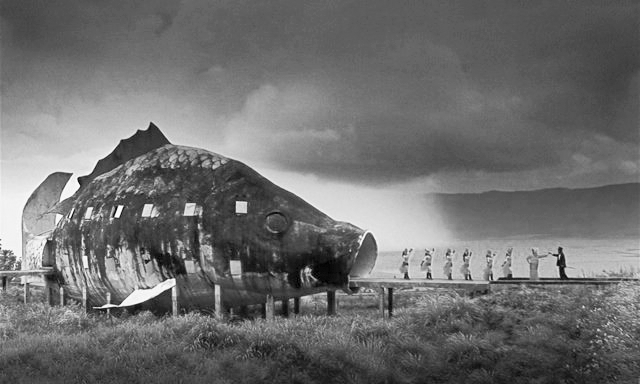“The Act of Killing” has not been easy to catch, as it’s only been available in a few theaters and festivals during the past year. Now, nominated for an Academy Award for Best Documentary, “The Act of Killing” is more relevant than ever.
“The Act of Killing” tells the story about a horrific time in Indonesian history through the eyes of Anwar Congo, an interesting player in that history. In Indonesia, from 1965 to ‘66, death squads beat, tortured and burned roughly 500,000 communists in an anti-communist purge.
Prior to filming, director Joshua Oppenheimer began a search to find people involved in the massacres and interview them in an attempt to learn the truth behind the massacre. Oppenheimer said he was simply trying to understand how something like this could have occurred and remain unmentioned for decades.
During his series of interviews, Oppenheimer said he stumbled upon Congo, one of the leaders of the death squads.
Unlike most documentaries, “The Act of Killing” does not just interview people and provide a narration of what occurred. Instead, Oppenheimer makes Congo his focus, and tells him to make his own film recreating what he did during that murderous period and explaining why.
Through Congo’s interpretation, Oppenheimer sheds light on not only the massacres, but also on the people who committed the murders, highlighting how media and film influenced Congo’s killing techniques. In the film, Oppenheimer also explores human nature.
The subjects make the film interesting. Congo is portrayed as a loving, family man, even though he was responsible for personally killing 1,000 communists.
As the film progresses, viewers see that Congo is a man who struggles with his political beliefs and the burden that he has had to carry for decades. However, it seems that making and watching cinema helps him cope with his issues.
Several other cohorts of Congo’s are also extensively interviewed in the film. Each man brings his own opinion to the film, with some viewing the massacre as a necessary cleansing that was not fueled by hate, and others bittersweetly remember the turbulent time.
Several surreal sequences from Congo’s vision are mixed into the documentary. The scenes range from women in pink dresses dancing outside of a giant fish to Congo singing near a waterfall and receiving a golden medal from a communist he had killed.
Oppenheimer edits the dream-like sequences into his film to compliment the disturbing subject matter. While the scenes are dreamy and artistic, unfortunately, the information is all too real.
Most importantly, Oppenheimer never once states that he disagrees with, or resents, the film’s subjects. Instead, he chooses to portray the men with an open mind, and at times he interjects facts about the law and hard-hitting ethical questions in between their statements.
“The Act of Killing” is the kind of documentary that will stick with you. It reveals truth about the extremes of human nature and reminds us of a forgotten genocide that should be a part of our historical knowledge.
Oppenheimer clearly feels passionate about this subject, and has created a profound, disturbing documentary that not everyone will be able to stomach.
The film has been released on Video on Demand and DVD.
DID WE DIG IT?
Our rating:
5/5 shovels




